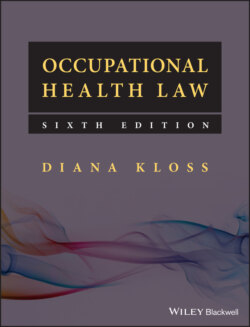Читать книгу Occupational Health Law - Diana Kloss - Страница 50
2.7 Professional standards
ОглавлениеIn 2007, the Disability Rights Commission, in the last months of its existence before it was subsumed into the Equality and Human Rights Commission, undertook a formal investigation of professional regulation of teaching, nursing and social work and disabled people’s access to those professions. The panel of inquiry disclosed that there is still a considerable body of legislation and guidance for the professions which lays down generalised standards of good health or fitness for entry and frequently undermines disability equality (Maintaining standards: promoting equality). For example, the Nursing and Midwifery Order 2001 makes provision for the NMC to prescribe requirements to be met by nurses and midwives applying for registration as to evidence of good health and character and gives power to investigate whether fitness for practice is impaired. Guidance emphasises the need for disclosure and implies that failure to disclose a health condition may constitute professional misconduct. The recommendation of the panel was that these general legal requirements for professionals should be revoked. Failure to disclose a disability or long‐term health condition should not be regarded as professional misconduct leading to disciplinary procedures unless there are serious concerns about the effect of the disability on the performance of the job, as in the case of a cardio‐thoracic surgeon who knows or suspects that he is a carrier of a blood‐borne virus, but fails to seek or take OH advice. The recommendations of the inquiry were not implemented, other than in the updating of disability discrimination law in the Equality Act.
